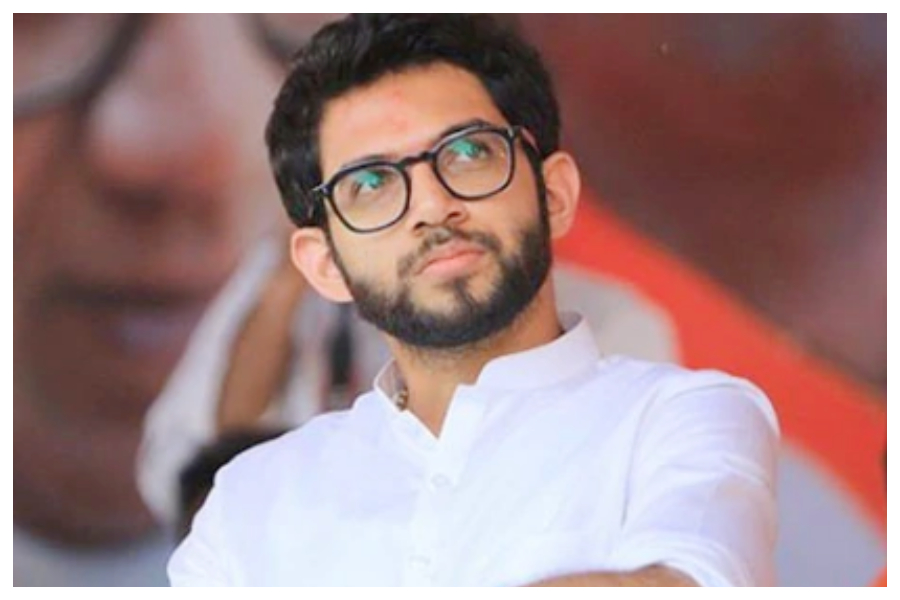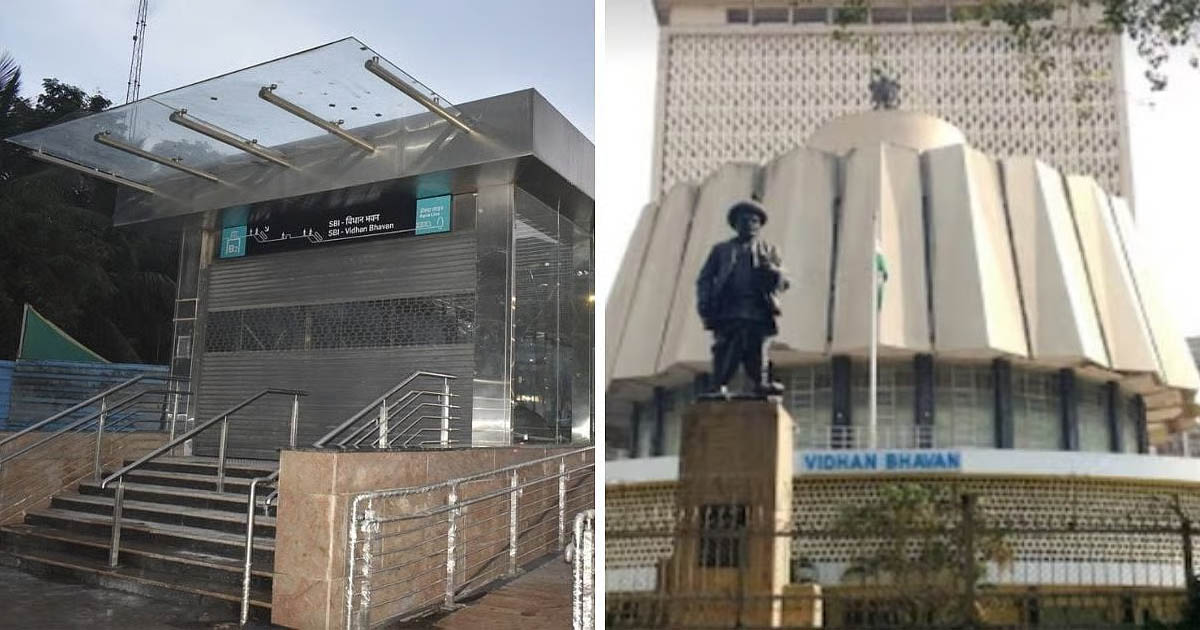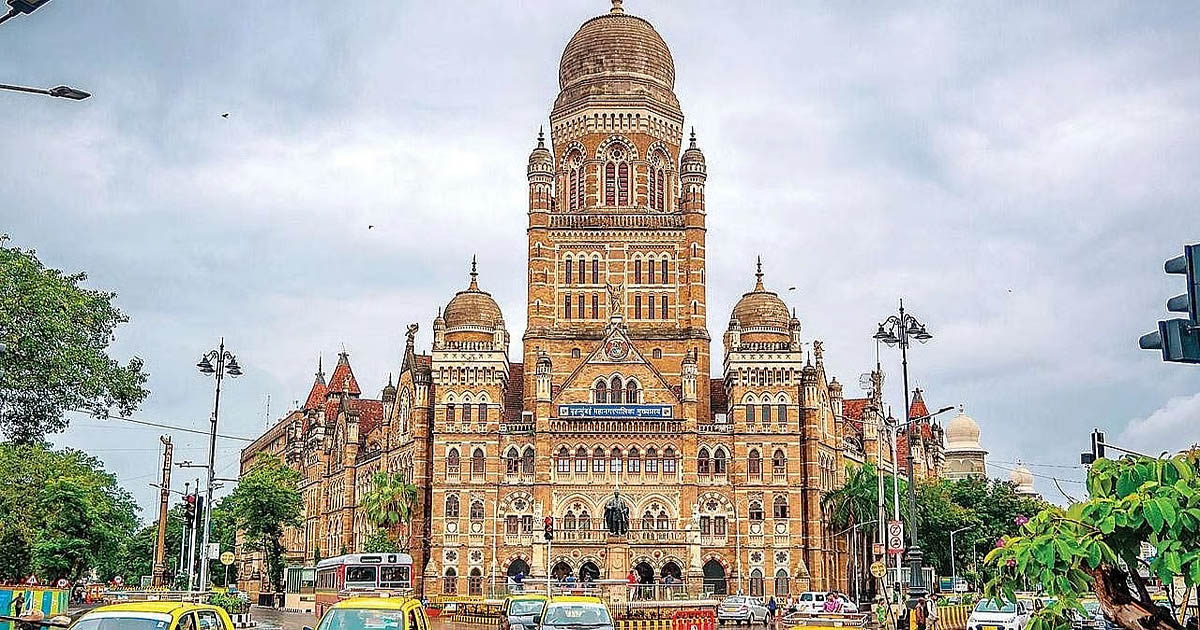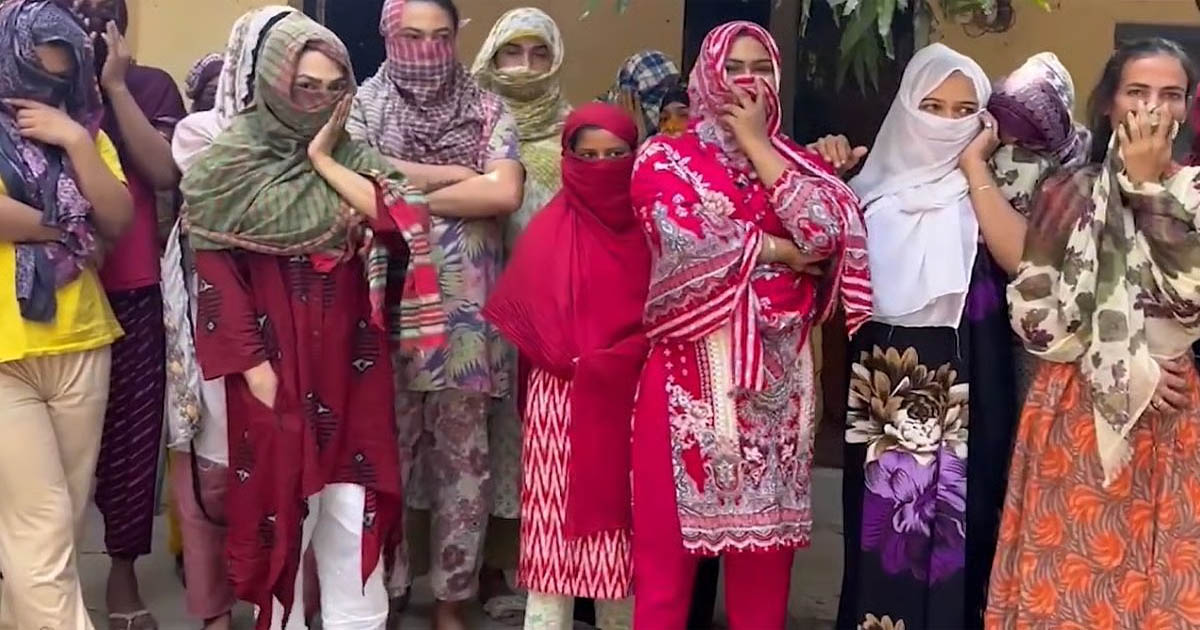Maharashtra
Mumbai University senate polls: Aaditya’s first big solo test

Aaditya Thackeray will face his first test since the Shiv Sena split, at the start of next year as Yuva Sena head. This is because the Mumbai University senate poll will be held in January or February. The Yuva Sena has always dominated this election. It is learnt that former Chief Minister Uddhav Thackeray has himself started preparing for it.
The Mumbai University has started the registration of new graduate voters and old voters are being re-registered. This will continue till December. There were around 65,000 voters in the last election which was held in 2018. According to sources, for this election, Uddhav Thackeray held a meeting of former corporators at his residence Matoshree. Sources claim he has asked them to work for the senate election and registration of voters. Meetings of party office-bearers from each vibhag were also held. Arvind Bhosle, spokesperson for the Thackeray-led party confirmed there was a meeting on Friday regarding the Senate election.
A former corporator who was present at the meeting said that the responsibility of registering graduate voters has been specially entrusted to the corporators and shakha pramukhs of the party. “They have good contacts in their ward. So they were entrusted with this responsibility. The party chief has also asked other office-bearers to contribute their time for this work,”
he said.
After the split in the party, the Thackeray-led Shiv Sena got a big setback in Thane. However, party leaders claim they are supported by voters there. “Even if there is less voting from Thane, it will be compensated from Mumbai as well as other districts like Palghar, Raigad, Ratnagiri and Sindhudurg,” said a party office-bearer.
The Shiv Sena’s youth wing, Yuva Sena, won 10 out of 10 seats in the 2018 Senate elections as compared to 2010, when it had won eight of 10 seats. Yuva Sena has been Aaditya’s pet body as he was launched into politics as its head at the party’s Dussehra rally in 2010 by his grandfather late Shiv Sena supremo Bal Thackeray. For the Mumbai University senate elections, a part of the Maha Vikas Aghadi (MVA), Congress student wing National Students Union of India has also started parallel registration process. The registration is going on from NSUI, but the main Congress has not yet participated in it, a Congress office-bearer said. “We are going to contest the elections. Voter registration has started for that,” said Youth Congress Mumbai President Zeeshan Siddiqui.
Yuva Sena leaders also said that the focus at present was only on registration. It is obvious that the Yuva Sena has been keeping a low profile as Chief Minister Eknath Shinde and his aides had claimed that political and administrative interference of a few Yuva Sena leaders during the MVA’s tenure had led to a lot of anger among the party’s rank and file. The Senate of the University is the watchdog of Mumbai University which has representatives of teachers, principals and the management. It is empowered to pass the university’s budget. Political observer Abhay Deshpande said that such elections are beneficial in attracting youth. It helps create the next generation of the main party. Another political observer said that if the Yuva Sena can maintain its dominance in this election, it will have a good effect on the morale of the party.
Leeladhar Bansod, deputy registrar of the Mumbai University, said, “The registration of voters—graduates—will continue online till December 13. After that, the draft list of voters will be published and suggestions and objections will be invited. After that the final list will be announced and the election programme declared.”
Maharashtra
Mumbai: Vidhan Bhavan Metro Gate B-4, Shut Due To Ongoing Maharashtra Budget Session, Reopens

Mumbai: The B-4 entry/exit gate of the Vidhan Bhavan Metro Station on the Mumbai Metro 3 (Aqua Line) has been reopened to passengers, while Gate B-5 continues to remain closed as per instructions issued by the Mumbai Police. The update was shared by Mumbai Metro Line 3 authorities on the social media platform X on Wednesday. Commuters have been advised to plan their travel accordingly.
The B-4 and B-5 gates were temporarily shut from February 23 to February 25 following directives from the Mumbai Police due to heightened security measures around the Maharashtra Legislative Assembly’s Budget Session. Both gates provide direct access to the Vidhan Bhavan complex, where proceedings of the Legislative Assembly and Legislative Council are currently underway.
Given the presence of several senior political leaders and ministers in the vicinity during the session, authorities had tightened access points around the complex as a precautionary measure.
At present, Gate B-4 has resumed operations for public use, while Gate B-5 remains inaccessible until further notice. In addition to B-4, commuters can use alternate entry and exit points, including A1, A2, A3, B1, B2 and B3 gates of the Vidhan Bhavan Metro Station.
Officials have urged passengers to factor in possible movement restrictions and minor delays while planning their commute through the station during the session period.
The Maharashtra Budget session commenced on Monday, 23rd of February, with the traditional joint sitting of both Houses, addressed by Acharya Devvrat. His address began after the House resonated with Vande Mataram, the National Anthem and the State anthem Jai Jai Maharashtra Maza.
The state budget for 2026 is scheduled to be presented on March 6 by Chief Minister Devendra Fadnavis. Notably, this session marks a rare instance in the state’s legislative history, with the post of Leader of Opposition lying vacant in both the Legislative Assembly and the Legislative Council.
Maharashtra
BMC Unveils ₹4,248 Crore Education Budget For 2026-27; Focus On Expansion & Growth In Mumbai

Mumbai: In a major move toward strengthening the city’s primary and secondary schooling infrastructure, the Brihanmumbai Municipal Corporation (BMC) on Wednesday officially tabled its education budget for the fiscal year 2026-27.
Presented by Additional Municipal Commissioner Avinash Dhakne, the Budget Estimate ‘E’ (Fund Code – 30) outlines a total expenditure of Rs 4,248.08 crore, marking a robust upward trend in the city’s investment in its students.
The new budget represents a substantial increase over the previous year’s figures. For the 2025-26 fiscal year, while the initial estimates were higher, the Revised Estimates eventually stood at Rs 3,674.10 crore. The jump to over Rs 4,248 crore for the upcoming year reflects the civic body’s commitment to meeting rising operational costs and expanding educational services across the metropolis.
The budget is bifurcated into Revenue and Capital accounts, ensuring both daily operations and long-term infrastructure projects are funded. The lion’s share of the funds, totalling Rs 3,758.08 crore, is allocated to Revenue Expenditure.
This covers recurring costs such as teacher salaries, school maintenance and administrative expenses. This is an increase from the Rs 3,287.32 crore recorded in the 2025-26 Revised Estimates.
BMC students will undergo cyber literacy training in civic schools, with a budget allocation of Rs 11.08 crore each for the primary and secondary sections. Students who complete the program will earn academic credits. By next month, 57 civic school buildings which are under repairs, under construction, redevelopment and new construction are expected to be completed.
Focused on the future, the BMC proposed Rs 490.00 crore for Capital Expenditure. These funds are typically utilised for the construction of new school buildings, major structural repairs and the procurement of high-value equipment like digital classrooms and laboratory tech.
Crime
Mumbai Police Arrests 25 Bangladeshi Nationals in Versova Crackdown; Probe Underway

Mumbai: In a fresh crackdown on illegal immigration, Mumbai Police arrested 25 Bangladeshi nationals from the Yuri Nagar area of Andheri West.
The operation was conducted by the Versova division of the Mumbai Police in coordination with the Anti-Terrorism Cell (ATC), following specific intelligence inputs.
Police sources said the team carried out a targeted operation in the locality, leading to the detention of the 25 individuals for allegedly residing in the city without valid documents.
Further investigations are underway to trace others who may be part of the network and to identify those who allegedly facilitated their illegal entry and stay in Mumbai, the police said.
The action comes amid an intensified drive against undocumented foreign nationals in the city. Earlier this week, a Bangladeshi woman was arrested in Vile Parle. It was later discovered that the same woman was deported to Bangladesh 6 months ago when she was discovered living illegally in Mira Bhayandar for 25 Years. Authorities have initiated fresh deportation proceedings against her.
Police indicated that porous border security and alleged collusion by certain personnel along the West Bengal border remain key concerns contributing to illegal infiltration.
Data shared by the police highlights the scale of the issue. Over the past three years, 1,758 Bangladeshi nationals have been detained in Mumbai for allegedly residing without valid documentation. Of these, 1,238 have already been deported, while the remaining cases are at various stages of legal processing.
As part of the ongoing crackdown, between January 1 and February 20, 2026, the police detained 113 Bangladeshi nationals. So far, 27 have been deported, and legal formalities are underway for the others.
Joint Commissioner of Police (Law and Order) Satyanarayan Chaudhary stated that in 2025 alone, 1,100 Bangladeshi nationals were deported. During the year, 150 cases were registered involving 224 accused. All cases are currently pending before the court and deportation proceedings will be completed after obtaining the necessary judicial orders.
Police have reiterated that the drive will continue in the coming weeks.
-

 Crime4 years ago
Crime4 years agoClass 10 student jumps to death in Jaipur
-

 Maharashtra1 year ago
Maharashtra1 year agoMumbai Local Train Update: Central Railway’s New Timetable Comes Into Effect; Check Full List Of Revised Timings & Stations
-

 Maharashtra1 year ago
Maharashtra1 year agoMumbai To Go Toll-Free Tonight! Maharashtra Govt Announces Complete Toll Waiver For Light Motor Vehicles At All 5 Entry Points Of City
-

 Maharashtra1 year ago
Maharashtra1 year agoFalse photo of Imtiaz Jaleel’s rally, exposing the fooling conspiracy
-

 National News1 year ago
National News1 year agoMinistry of Railways rolls out Special Drive 4.0 with focus on digitisation, cleanliness, inclusiveness and grievance redressal
-

 Maharashtra1 year ago
Maharashtra1 year agoMaharashtra Elections 2024: Mumbai Metro & BEST Services Extended Till Midnight On Voting Day
-

 National News1 year ago
National News1 year agoJ&K: 4 Jawans Killed, 28 Injured After Bus Carrying BSF Personnel For Poll Duty Falls Into Gorge In Budgam; Terrifying Visuals Surface
-

 Crime1 year ago
Crime1 year agoBaba Siddique Murder: Mumbai Police Unable To Get Lawrence Bishnoi Custody Due To Home Ministry Order, Says Report





















